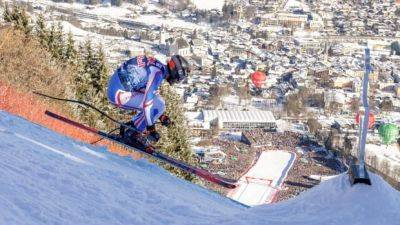Ski industry increasingly making artificial snow as Mother Nature fails to deliver
At Cypress Mountain ski resort, director of operations Jeremy Wentzel has been eagerly waiting for a chance to fire up the snow guns.
The Vancouver ski destination has manufactured more than 32 hectares of artificial snow for skiers and boarders to enjoy since opening Dec. 7 for the season, but much of that was lost to rainfall and warm temperatures later in the month.
With cooler weather in the forecast, however, Wentzel said a prime opportunity to pump out fresh powder could be just around the corner.
"We're just waiting for temperatures to fall slightly, because we're getting very, very close to a pretty significant snow-making window," Wentzel said.
"It has been a challenge this Christmas period. But temperatures do generally get there eventually, and then you get to put on display what having a robust snow-making system can do for you."
Artificial snow-making — which involves using machines, or "guns," to spray a mixture of water and compressed air that then freezes into snowflakes — has been used by the Canadian ski industry since its development in the 1950s.
But with climate change now posing an existential threat to an industry that depends on winter weather, snow-making is expected to become more important than ever.
A University of Waterloo study conducted in partnership with the University of Innsbruck in Austria suggests snow-making production requirements by the Canadian ski industry will increase between 55 and 97 per cent by 2050, as climate change brings warmer winters and less natural snowfall.
In Ontario alone, for example, changing weather patterns due to climate change could shorten the average length of the ski season by up to 60 per cent.
Already, in an average winter, Canadian ski resorts produce








